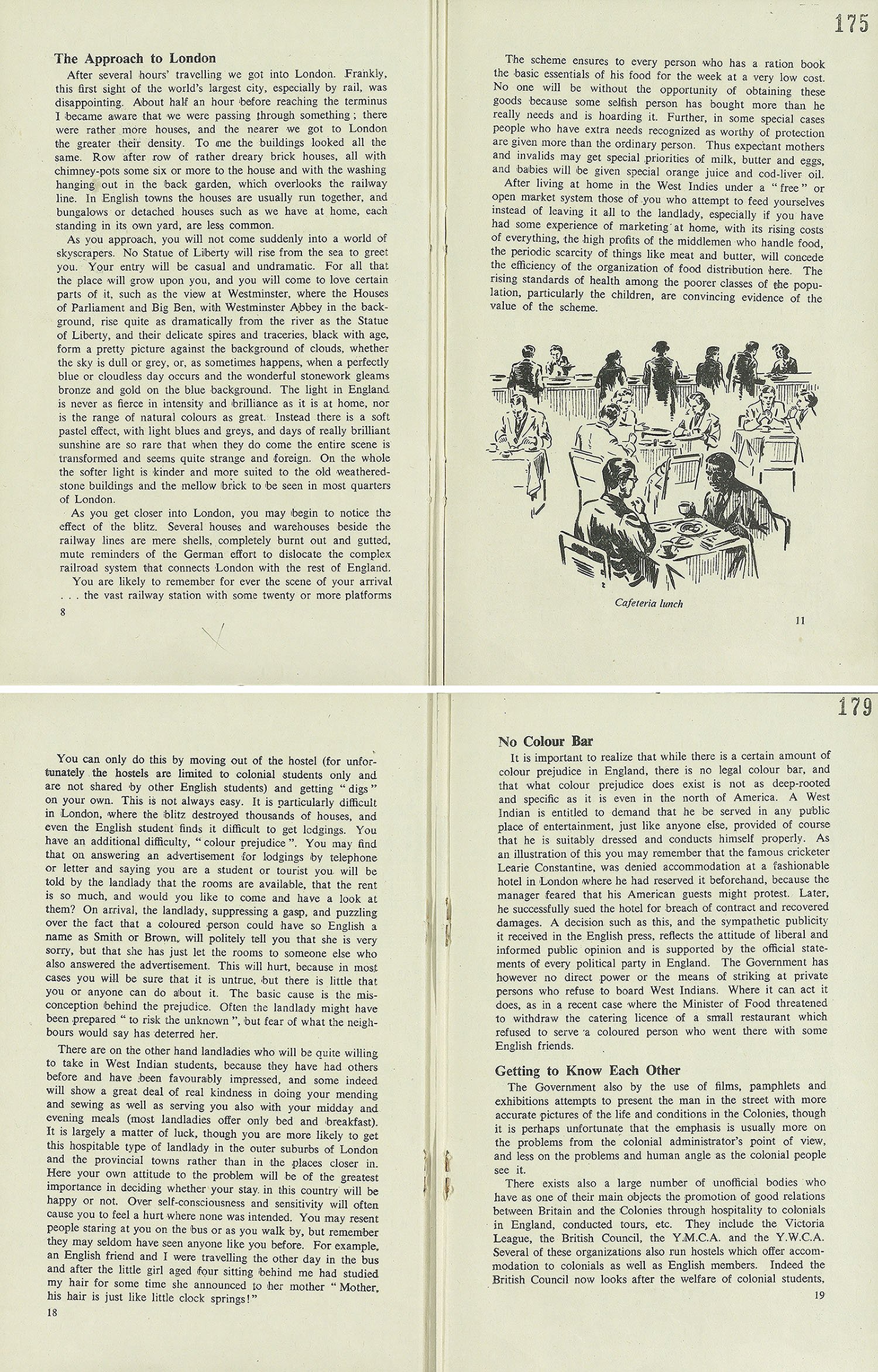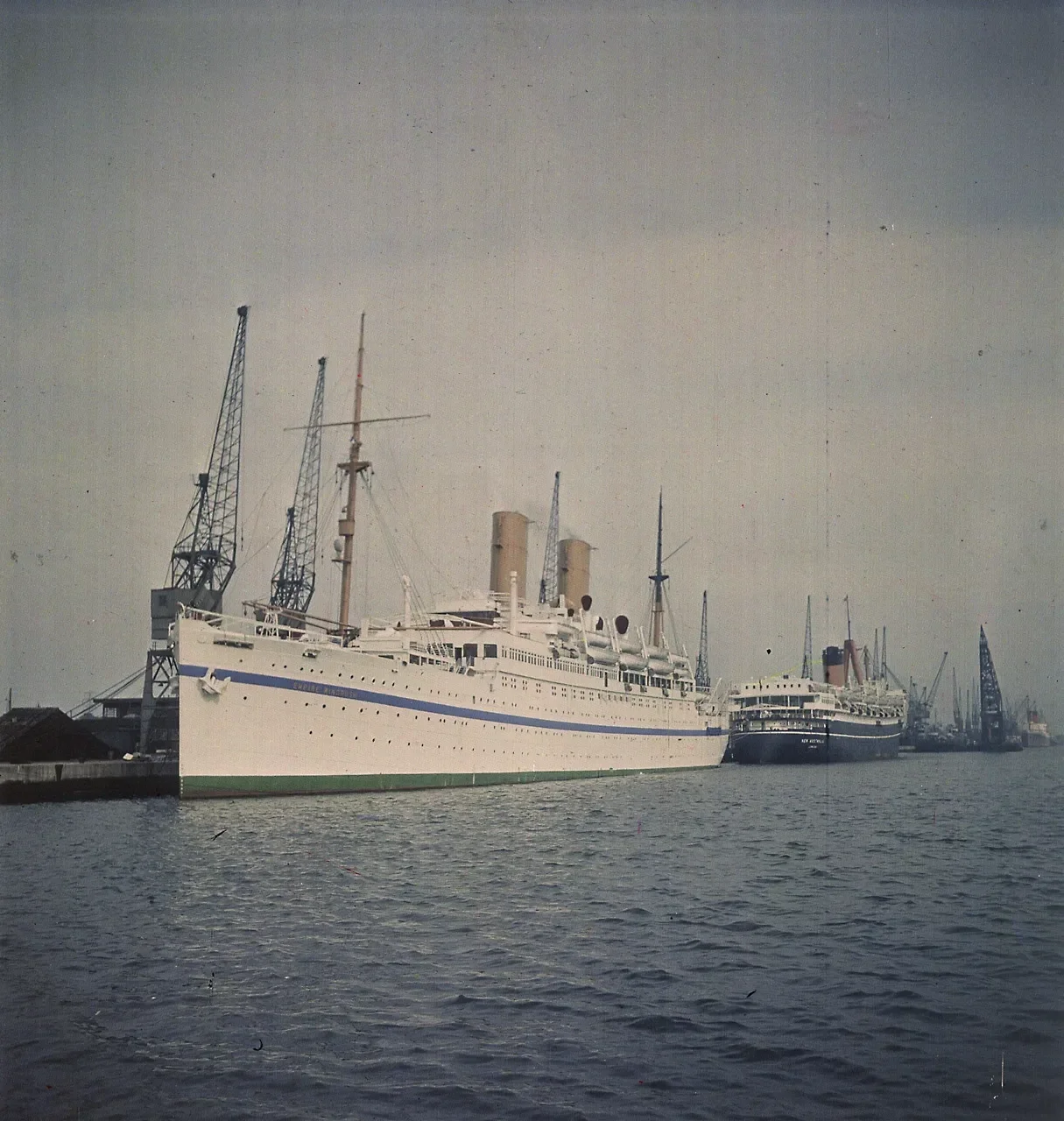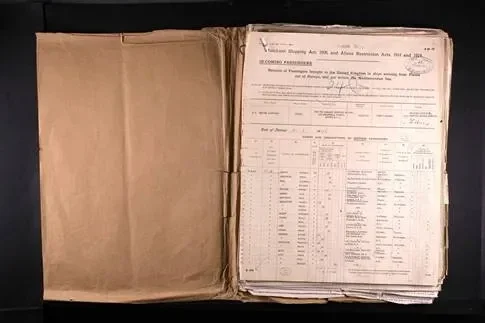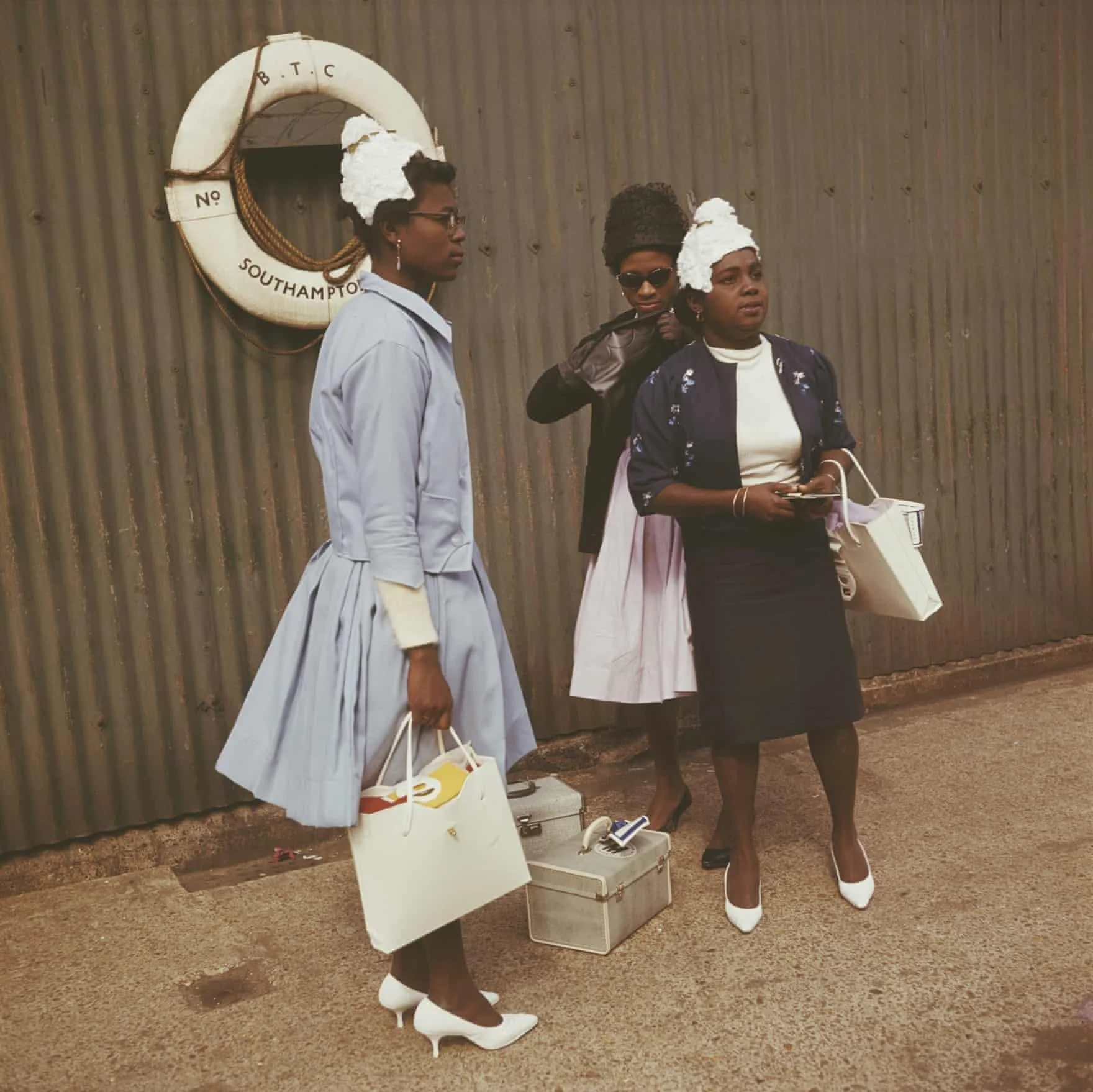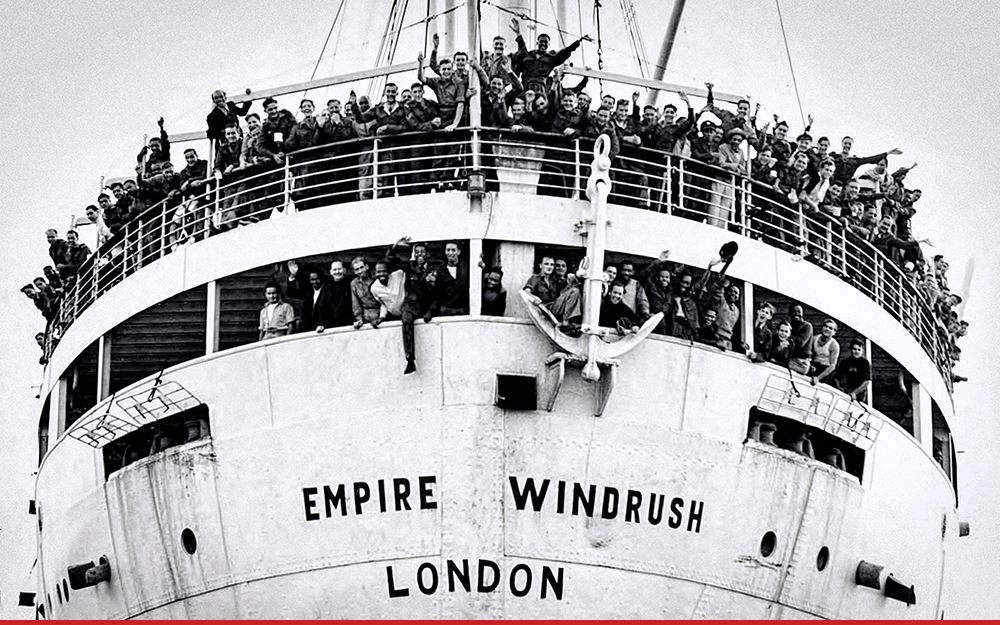The Windrush Generation refers to people from Caribbean countries who migrated to the UK between 1948 and 1973, playing a crucial role in post-war Britain's labor shortage by filling jobs in healthcare, transport, and public services.

An RAF recruiting officer speaks to a group of men about joining the airforce, Port of Tilbury, 22 June 1948 - via autograph ''Journeys to Hope Windrush Narratives''

Telegram concerning passengers on the Empire Windrush, 6 July 1948 (Catalogue ref: CO 876/88) - National Archives

British Online Archives, The Sphere, 1900–1964, “Home News in Pictures, 3 July 1948,

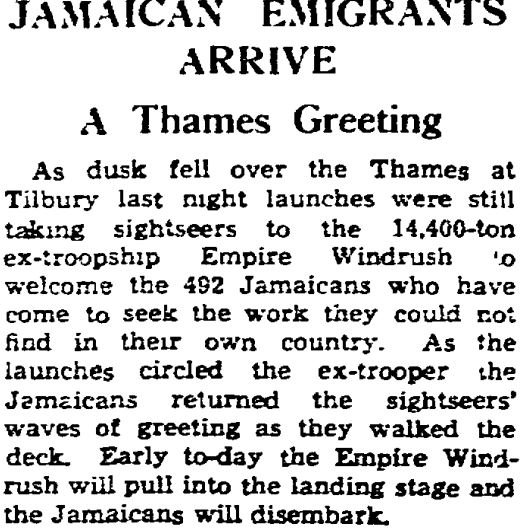
“Jamaican Emigrants Arrive: A Thames Greeting” Manchester Guardian, 1948
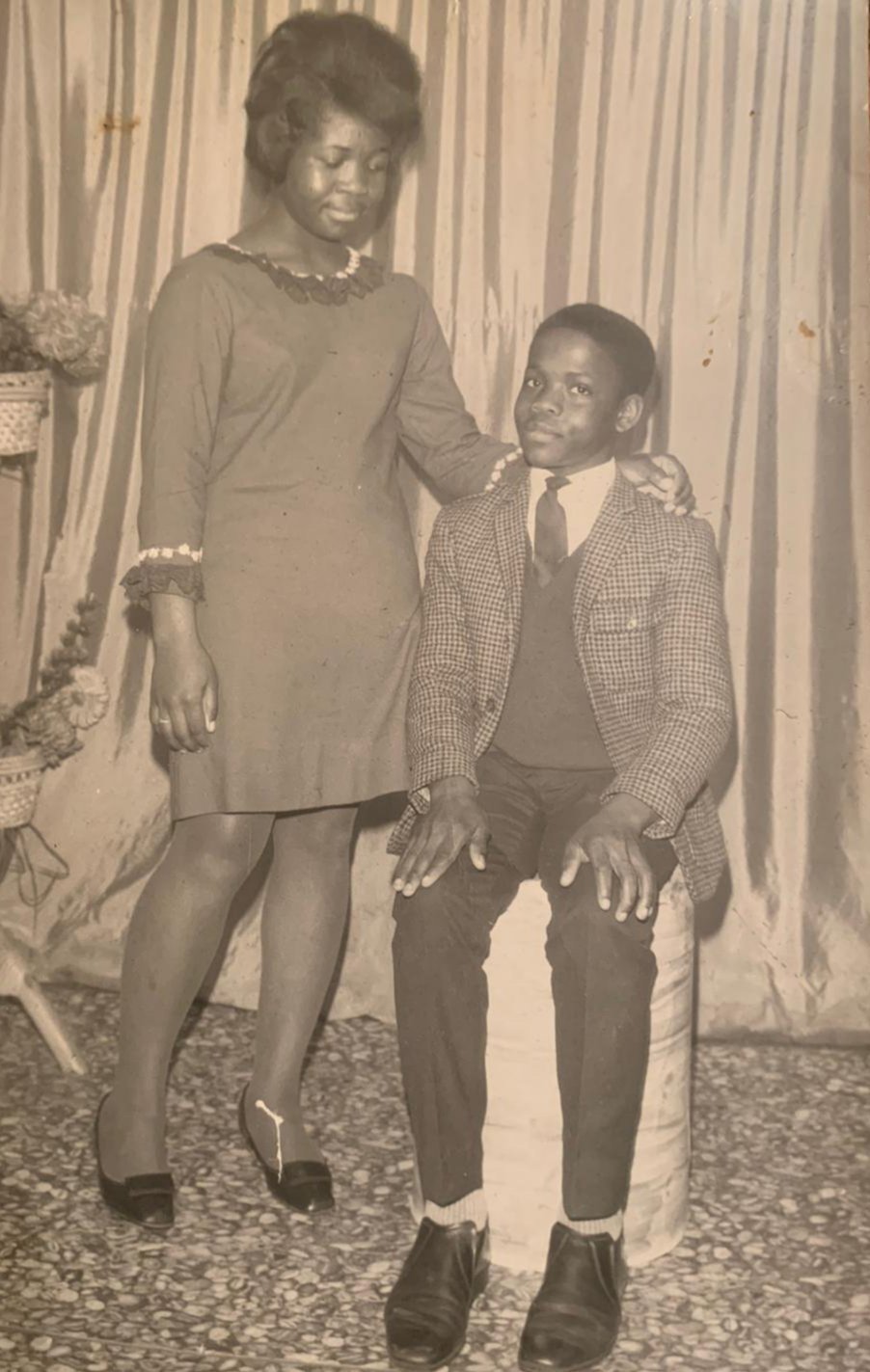
Over A Barrel: Windrush Children, Tragedy and Triumph
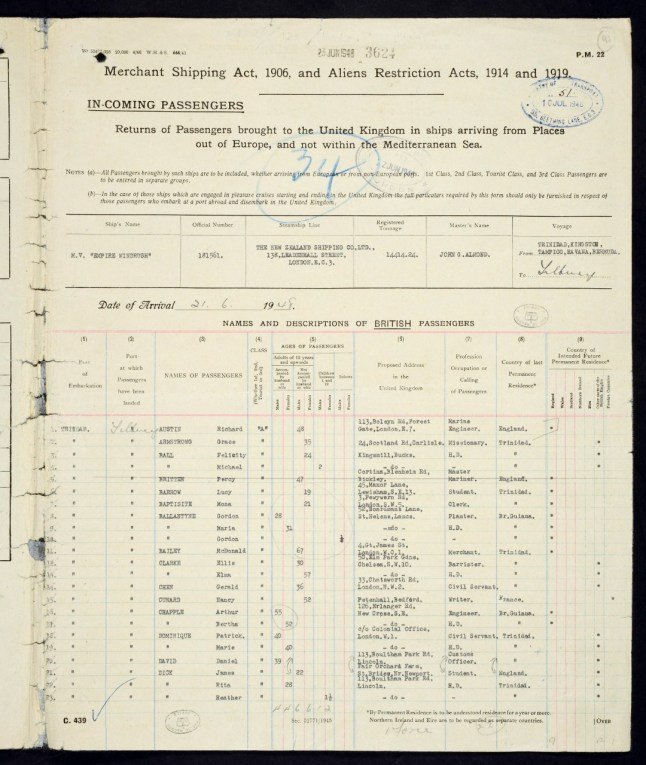
The Empire Windrush’s passenger list (Picture: National Archives)

Train Journey to the Land of Promise, 1 May 1954 - via autograph ''Journeys to Hope Windrush Narratives''

Clapham South Deep-Level Shelter, London, 22 June 1948 - via autograph ''Journeys to Hope Windrush Narratives''


Three “Windrush” nurses

On 21 June 1948 HMT Empire Windrush arrived in Britain, carrying 492 Caribbean migrants, the start of the Windrush generation. The Western Morning News describes how 236 of these migrants were then housed in a deep shelter in Clapham. From The British Newspaper Archive. https://bit.ly/3vIfDVy

Final report on Windrush dispersal.
Extract from the passenger list of the Empire Windrush, Catalogue Ref: BT 26/1237

Journey to the Land of Promise, 1953- via Autograph Journeys to Hope Windrush Narratives

Wet Welcome into Southampton Docks, 24 October 1961 - - via Autograph Journeys to Hope Windrush Narratives
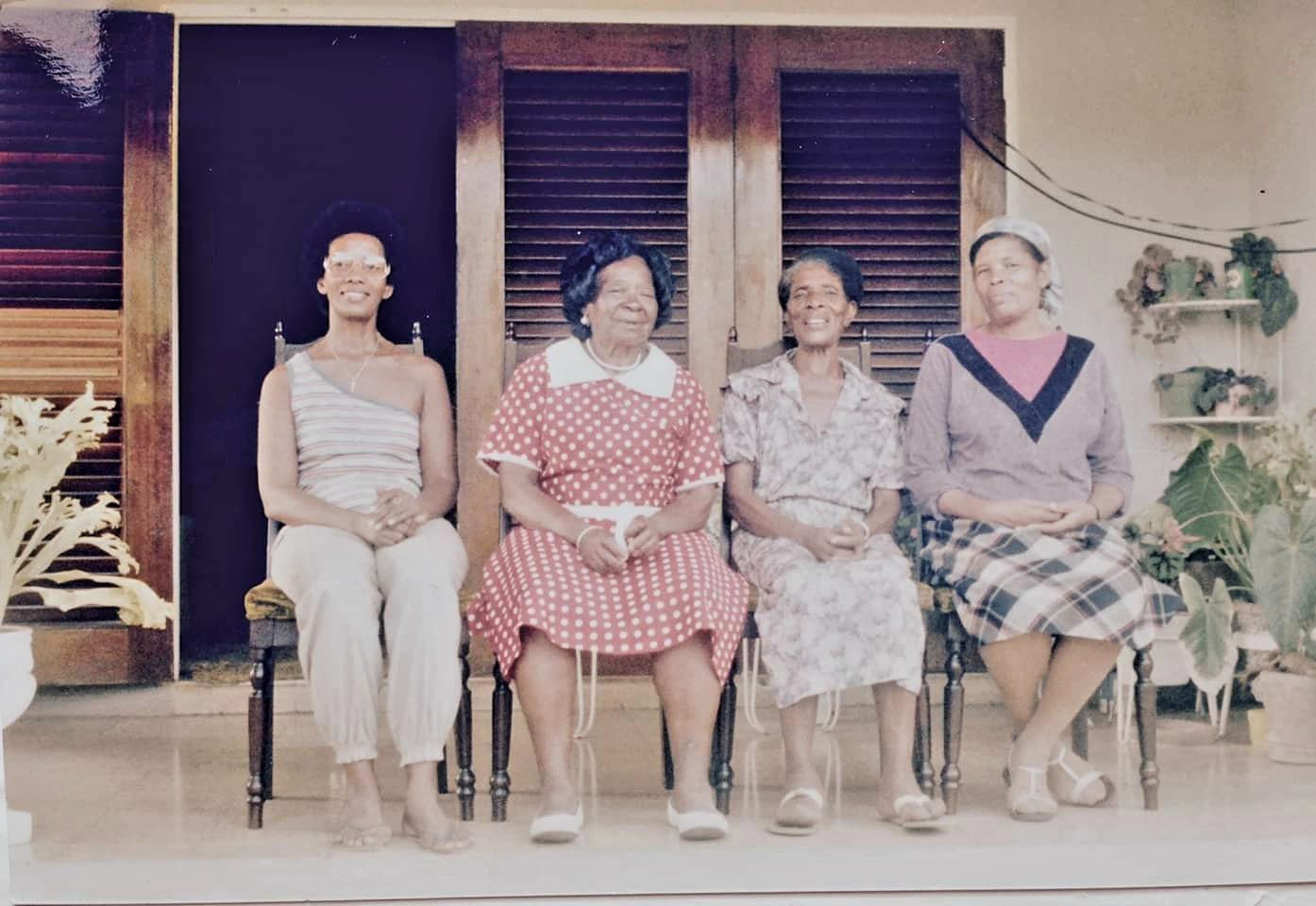
''Over A Barrel: Windrush Children, Tragedy and Triumph'' Copyright © Anthony Brown & Black Cultural Archives, 2023

An Evening Standard 1948 article highlighting the coming of Windrush to the English shores.
Information booklet called ‘A West Indian in England’ written by H.D. Carberry and Dudley Thompson. The pamphlet was designed to give early immigrants some idea of life in Britain. It was distributed by the Colonial Office to colonies in the Caribbean, 1949-1951. Catalogue ref: CO 875/59/1 . The National Archives.
"The Empire Windrush arrives from Jamaica in 1948. The ship docked at Tilbury in Essex, having sailed from Australia via Jamaica. During the second world war, thousands of men and women from the Caribbean had served in the armed forces, and the Empire Windrush stopped in Jamaica to collect some of them. Many people, having seen the Daily Gleaner newspaper advertising the journey for £28 and 10 shillings (equivalent to over £1,000 today), decided to travel to Britain." Photograph: Daily Herald Archive/SSPL via Getty Images. 'Windrush arrivals embark on a new life in UK – archive photos', Joanna Ruck, The Guardian, Apr 2018.
A child takes a nap after a long journey to Victoria station in London Photograph: Daily Herald Archive/SSPL via Getty Images. 'Windrush arrivals embark on a new life in UK – archive photos', Joanna Ruck, The Guardian, Apr 2018.
A woman waits with her luggage at Victoria in 1956 Photograph: Haywood Magee/Getty Images. 'Windrush arrivals embark on a new life in UK – archive photos', Joanna Ruck, The Guardian, Apr 2018.

A family wait at a railway station after arrival Photograph: Evening Standard/Getty Images. 'Windrush arrivals embark on a new life in UK – archive photos', Joanna Ruck, The Guardian, Apr 2018.
A group of women from Jamaica buy train tickets at Gatwick airport in 1962 Photograph: Keystone-France/Gamma-Keystone via Getty Images'Windrush arrivals embark on a new life in UK – archive photos', Joanna Ruck, The Guardian, Apr 2018.

A group of men wait outside the labour exchange in Liverpool in 1949 Photograph: Hulton Deutsch/Corbis via Getty Images. 'Windrush arrivals embark on a new life in UK – archive photos', Joanna Ruck, The Guardian, Apr 2018.
A newly arrived couple travel by train to London Photograph: Haywood Magee/Getty Images. 'Windrush arrivals embark on a new life in UK – archive photos', Joanna Ruck, The Guardian, Apr 2018.

West Indian people at Victoria station after their journey from Southampton docks Photograph: Haywood Magee/Getty Images. 'Windrush arrivals embark on a new life in UK – archive photos', Joanna Ruck, The Guardian, Apr 2018.
People consult a newspaper in the Southampton arrivals hall Photograph: Haywood Magee/Getty Images. 'Windrush arrivals embark on a new life in UK – archive photos', Joanna Ruck, The Guardian, Apr 2018.

Salvation Army charity workers assist new arrivals at Victoria station Photograph: Hulton Deutsch/Corbis via Getty Images. 'Windrush arrivals embark on a new life in UK – archive photos', Joanna Ruck, The Guardian, Apr 2018.
Three women wait with their hand luggage at Southampton in 1962 Photograph: Popperfoto/Getty Images. 'Windrush arrivals embark on a new life in UK – archive photos', Joanna Ruck, The Guardian, Apr 2018.

A view of the customs hall at Southampton docks in 1962 Photograph: Popperfoto/Getty Images. 'Windrush arrivals embark on a new life in UK – archive photos', Joanna Ruck, The Guardian, Apr 2018.

Working Christmas, Article, Windrush Exhibition, Telford & Wrekin Libraries

We will stay together, Article, Windrush Exhibition, Telford & Wrekin Libraries.
The part of a letter sent to the Secretary of State for the Colonies concerning working conditions for sugar workers in Jamaica. 26 January 1943, Catalogue ref: CO 137/852/7 This is part of a letter about Jamaican sugar workers who worked on large estate [for Tate and Lyle] where the sugar crop was grown. The Secretary of State for the Colonies, or Colonial Secretary was the British Cabinet minister in charge of managing the United Kingdom’s various colonies. A colony is a country or territory controlled to by another country. Jamaica at this time was a British colony and gained independence in 1962. The National Archives.
A telegram to Mr Cummings, Colonial Office in London, from Mr Smythe about passengers on the Windrush, 6 June 1948, Catalogue ref: CO 876/88 This telegram was sent on 6th June before the arrival of the Empire Windrush to share information about the passengers. Explain that a telegram is a message that is sent by electricity or radio and then printed and delivered to someone’s home or office. ‘STOP’ was used in the telegram to mean ‘full stop’ as the telegram lacked punctuation marks. The National Archives.
Registration of British Nationality for Ena Clare Sullivan. Country of Nationality or Birth: Jamaica, 3 December 1968. Catalogue ref: HO 334/1406/110478 "Ena Clare Sullivan was a passenger on the ‘Empire Windrush’ which docked at Tilbury harbour in Essex on 22 June 1948. From her registration of British Nationality we can find out about her life." The National Archives.
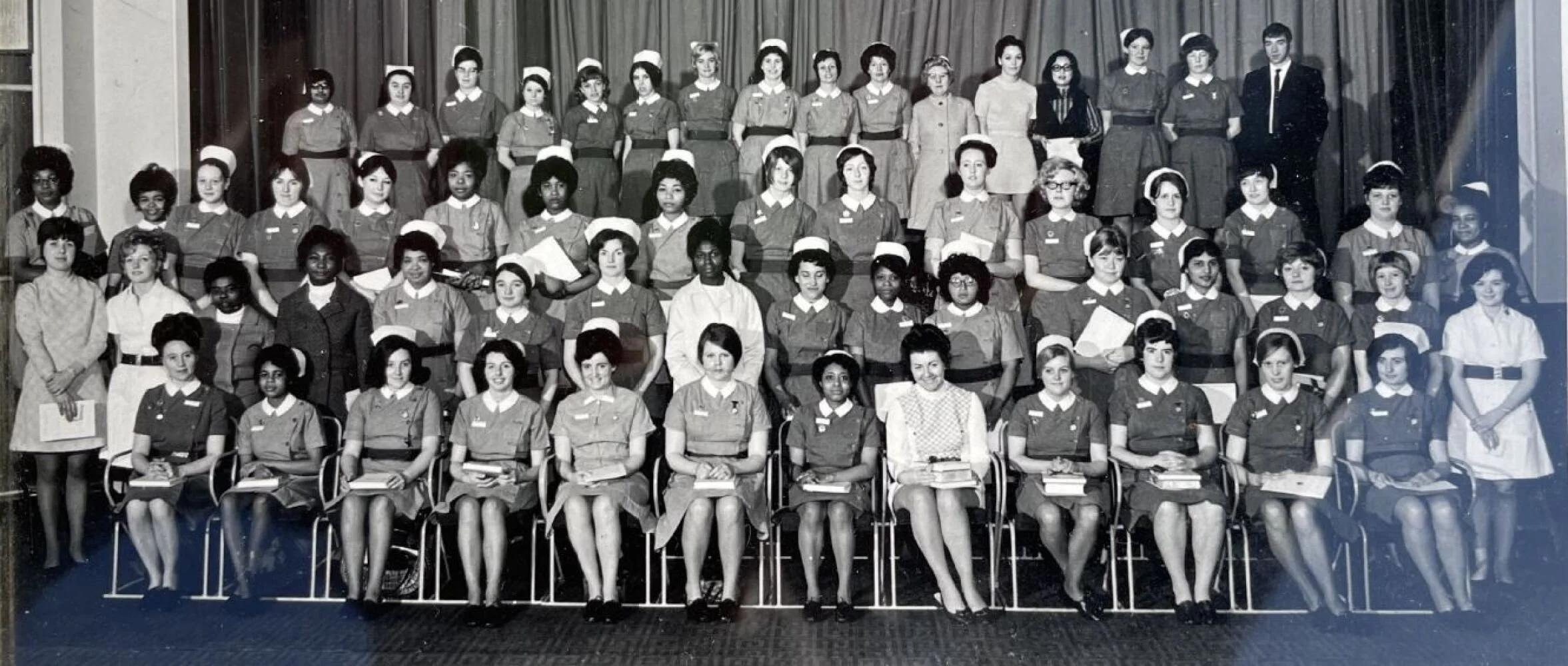
Windrush Nursing Team, Community Photograph, Windrush Exhibtions, Telford &Wrekin Libraries.
Grey, Howard. 2019. “The Last of the Windrush Arrivals in 1962 – in Pictures.” The Guardian, October 12.

Grey, Howard. 2019. “The Last of the Windrush Arrivals in 1962 – in Pictures.” The Guardian, October 12. Photograph: A detail from one of Howard Grey’s newly printed photographs of the last Windrush arrivals at Waterloo Station, London in 1962.


